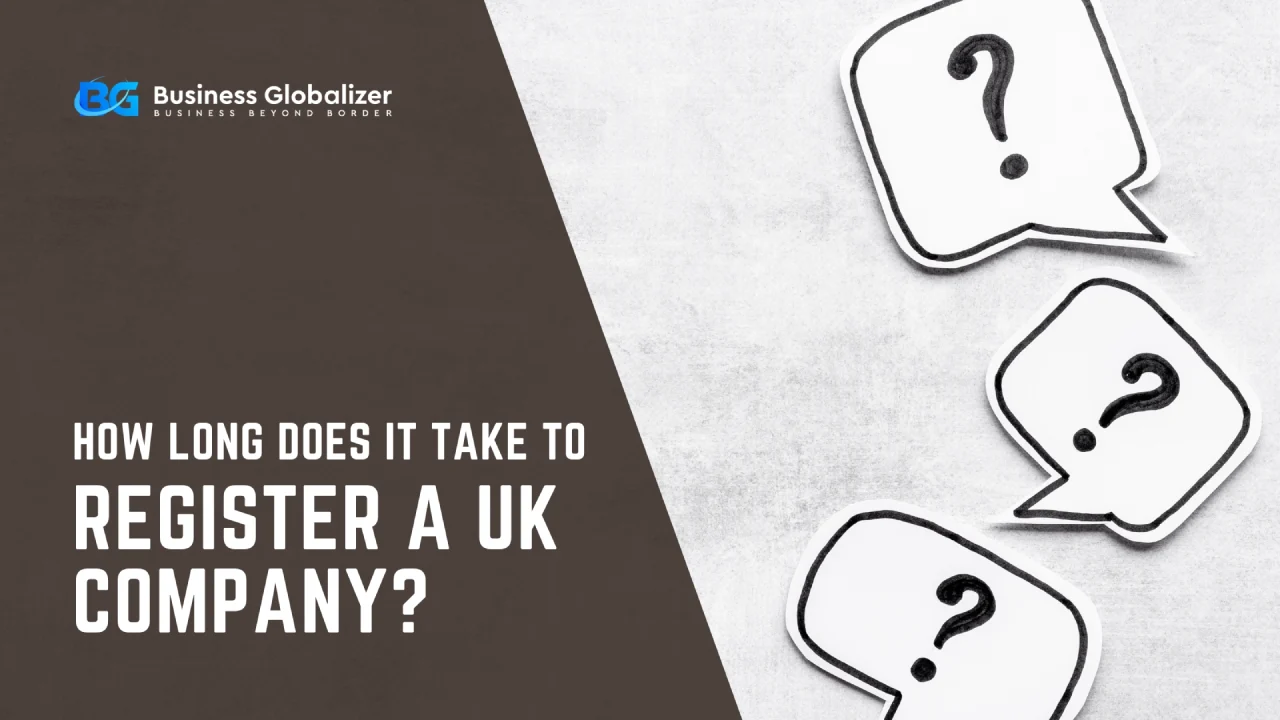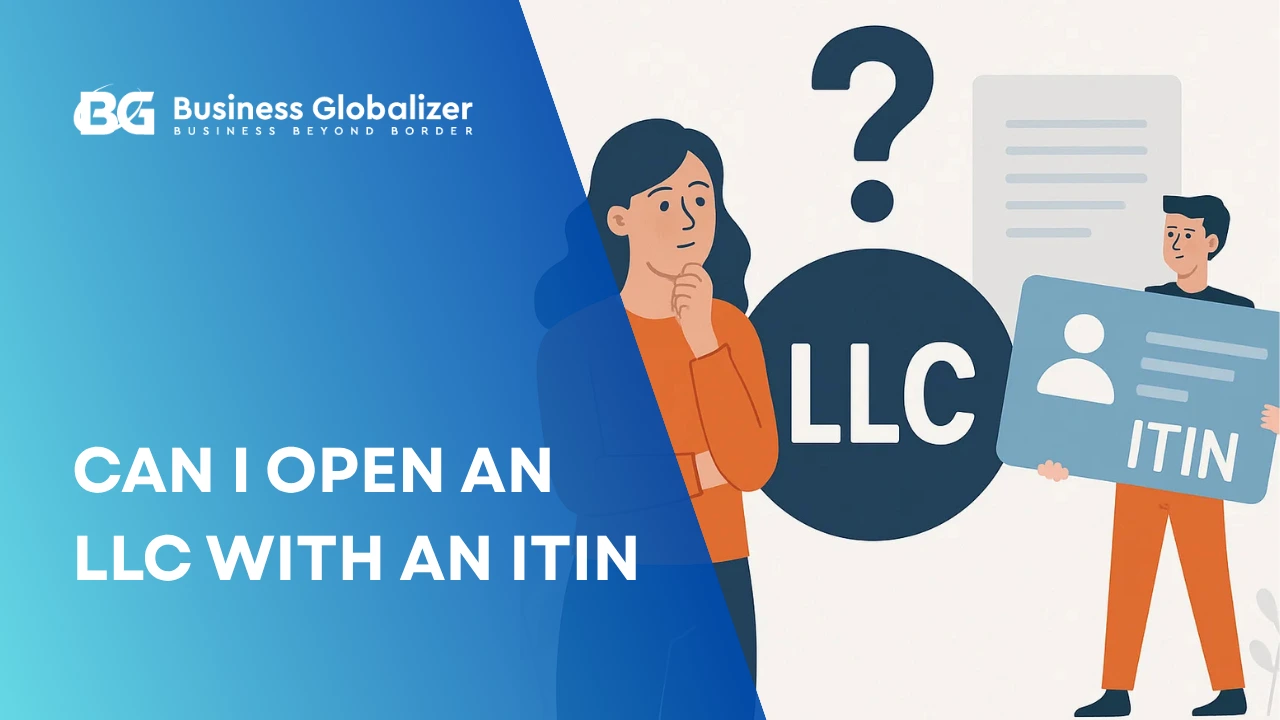When starting a business, many entrepreneurs have a common concern: “How long does it take to register a UK company?” Before you can plan the debut and ensure you meet all legal requirements, you must understand the registration timeframe. Although it is a straightforward procedure, the speed with which your company gets official recognition is dependent on a few factors.
In this blog, we will go over the elements of starting a business in the UK and provide an estimate of how long it should take. We are here to help, regardless of your level of experience!
Key Insights
- Online registration for limited companies is typically completed in 24 hours.
- Postal applications take longer, around 8-10 days.
- Sole traders can set up in minutes through HMRC, without Companies House registration.
- Partnerships need only HMRC notification; LLPs mirror limited companies and usually confirm within a day online.
- Accurate details prevent delays; errors often require revisions.
- More complex structures, like limited companies, may take longer due to extra paperwork.
- Online submissions are faster; postal methods extend the timeline.
- Peak periods, like financial year starts, may slow processing at Companies House.
What Is Needed to Set Up a UK Company?
You should familiarize yourself with the requirements for establishing a business structure before proceeding with the UK company registration timeframe. To get you started, think about these key structures: do you find it appealing to establish a limited company, partnership, or sole trader company?
- Choose the Business Structure: To set up a company in the UK, first, you must decide which business structure you will use to form the business. The following business structures in the UK are common:
- Limited Company: With a limited company structure, you have limited liability, which means that if the business goes bankrupt, your personal assets will be safe.
- Sole Trader: You can manage your company freely with this most basic and uncomplicated form. However, any business debts that arise will be your own responsibility.
- Partnership: A partnership in the UK works well for you if you wish to manage a firm with a partner, but each partner will be individually liable for the debts.
- Limited Liability Partnership (LLP): A hybrid business structure that provides administration flexibility and combines both a partnership and a limited company. The LLP’s debts and obligations will not be personally the responsibility of the partners.
- Limited Company: With a limited company structure, you have limited liability, which means that if the business goes bankrupt, your personal assets will be safe.
- Company Name: Your chosen name must be unique and comply with certain UK regulations. It shouldn’t be too similar to existing businesses or contain prohibited words. Verify the availability of your intended name by contacting the Companies House register.
- Directors and Shareholders: At least one director (who must be at least 16 years old) is required for a limited company. Determining the initial shareholders and the number of shares to be issued is also necessary when establishing a limited company.
- Registered Office Address: Every UK company must have a registered office address where official correspondence can be sent. This address will be publicly available, so consider using a business address rather than a home address for privacy.
- Service Address for Directors: If you’re registering a limited company, you’ll need a service address for each director. This address is where legal documents will be sent and is often different from the registered address. It can also be your home address or another location you choose.
- Memorandum and Articles of Association: This documentation defines the organization’s framework and regulations. The memorandum confirms the intent to form the company, while the articles set out how the company will be governed.
- SIC Code: It is essential to choose a SIC code that best describes your company’s nature and activities. This code is useful for classifying your business within the context of the British economy.
- Personal Information: Prepare personal information for all directors and shareholders, including full names, addresses, dates of birth, and nationality. This information will be required to register a company in the UK.
- Initial Capital: Determining the amount of share capital is necessary if you are starting a limited company. Although you can donate more based on your business needs, the minimum contribution is often £1.
- National Insurance Number: A National Insurance Number is required for each member of a partnership or sole trader at the time of entity formation. In the future, this will be required for the purpose of tax or self-assessment, as well as to contribute to the UK social security system.
- Person with Significant Control (PSC): Depending on the jurisdiction, limited companies and limited liability partnerships must identify a Person with Significant Control (PSC) during incorporation.
- Online Registration Account: For a smooth registration process, consider setting up an account with Companies House, the official UK government register of companies. This will streamline your application.
- Company Registration Fee: Be prepared to pay a UK company registration fee to Companies House during the process.
Having these things will prepare you to launch your UK company. Once everything is prepared, you are ready to move on to the next step.

How Long Does It Take to Register a UK Company?
You may be wondering how long the registration process truly takes now that you know all the information needed to incorporate a company in the UK.
To be honest, the timeframe of registering a UK business depends on the structure and application process you choose.
Registering as a Limited Company
For limited companies, the process is generally quite fast. When registering limited companies online, you can have your company up and running in as little as 24 hours. But if you choose to send your application by post from anywhere, this might take 8-10 days.
Registering as Sole Trader
The transition to operating as a sole trader is a lot less complicated. Although registering with Companies House is unnecessary, becoming a lone trader does need to notify HM Revenue and Customs. It usually just takes a few minutes to finish this online.
Note: While the registration process is simple, you must still keep correct financial records and file your taxes through self-assessment.
Registering as Partnership
Similar to sole traders, partnerships do not need to register with Companies House; nevertheless, you must notify HMRC. It simply takes a few minutes to complete this online. You will need these financial records for tax purposes, so maintaining accurate records is crucial in this situation as well.
Registering For LLP
A limited liability partnership’s (LLP) application procedure is fairly comparable to that of a limited corporation. While postal applications take longer, online registration allows you to expect a confirmation in less than a day.

Factors That May Affect Company Formation Duration
While the UK company registration time frame is often short, there are several factors that may affect your registration and application time for a company formation. The smallest errors and oversites sometimes may cause the reason for being delayed in your company’s formation.
Understanding the following elements can help you prepare for potential delays and streamline the process.
1. Completeness of Your Application
Your application may be delayed significantly if any necessary documents or information are missing. For instance, Companies House may return your application for revision if you do not provide the necessary information for company directors and shareholders, or if you do not offer a valid service address. As a result, that causes delaying your UK business registration deadline.
2. Business Structure Complexity
The type of business structure you choose can impact registration time. Limited companies may require additional documentation compared to sole traders. For instance, submitting the Articles of Association for a limited company requires more time than registering as a sole trader, which has minimal documentation.
3. Business Name Approval
There may be certain company names that need more investigation. You might have to wait for approval if your suggested name contains offensive words or phrases or is too close to an already-existing company. For example, obtaining special rights to incorporate “Bank” in your company name may prolong the registration period.
4. Method of Registration
As previously mentioned, the method you choose for registration plays a role. Online registrations through Companies House may be quicker, typically taking up to 24 hours, while paper applications sent by post can take around 8 to 10 days.
5. Compliance with Regulations
Sometimes, you may need to get more licenses and approvals for your business if it works in a very controlled field like finance or healthcare. When you wait for regulatory bodies to give their approval, these rules can make the registration process take a lot longer.
6. Presence of Errors or Omissions
When you make simple mistakes, like typing mistakes in the application, it can cause delays. For example, if the wrong date of birth for a director is entered, Companies House will let you know and stop the filing process until the problem is fixed.
7. Volume of Applications at Companies House
During peak times, such as the beginning of a new financial year or following major business events, Companies House may experience a high volume of applications. This influx can slow down processing times, affecting how quickly your company is registered.
By being aware of these factors and preparing your application thoroughly, you can help minimize delays and set your business up for a successful launch in the UK market.
How Can You Speed Up the UK Company Registration Process?
You are wondering about this section’s title question, right? Glad, we can clear that up. While online registration can be done in a day, going it alone can cause delays. Business Globalizer is here to make it easy.
Our team handles all the paperwork with precision, helping you avoid errors that could slow things down. Unlike general services, we focus on swift, smooth setups—often within 3-5 business days. With careful checks before submission, we ensure a seamless start, so you can launch with confidence.
How Much Does It Cost to Set Up a Limited Company in the UK?
When evaluating the expenses of forming a limited company in the United Kingdom, it is crucial to comprehend the diverse expenses that accumulate during the process. At Business Globalizer, we offer a comprehensive package that can streamline your company formation while keeping prices transparent.
The initial registration fee with Companies House is typically around £50 if you opt for online registration and £71 for postal applications. However, the registration process for Business Globalizer begins at roughly $209 for the basic package, which covers company registration and a registered office address. Additional fees may apply depending on the services you choose.
Depending on your unique requirements, a more comprehensive package that includes business bank account registration, continuing compliance help, and so on could cost $250 to $500 (USD) or more. It is also important to consider annual fees for running your business, such as filing annual accounts, company renewal, and accounting services, which vary based on different factors. To learn more, reach out to us.
FAQs
Q1: Can I register a limited company online?
Answer: Yes, you can register a limited company online through Companies House or a company formation service like Business Globalizer, making the process quick and straightforward.
Q2: Which business structures can I choose from doing business in the UK?
Answer: You can choose from several business structures, including limited companies, sole traders, and partnerships. Business Globalizer specializes in limited company formations.
Q3: Do I need to register as a sole trader or partnership business with Companies House?
Answer: No, sole traders and partnerships do not need to register with Companies House. However, you must notify HMRC of your business activities.
Q4: What happens if I make a mistake in my application?
Answer: If there are errors in your application, Companies House may return it for revision, which can delay the registration process. It’s crucial to double-check all information before submission.






